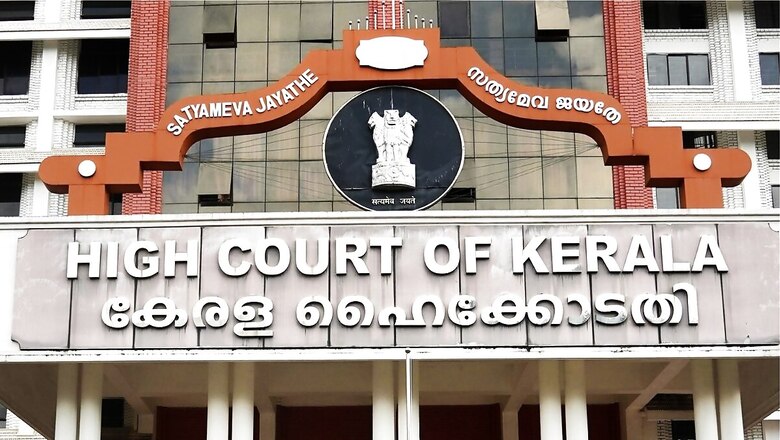
views
The Kerala High Court has quashed the criminal proceedings against a man accused of rape, in a case filed after 13 years of the alleged incident, concluding that the sexual intercourse was consensual and not based on any misconception of fact.
Justice A Badharudeen delivered the ruling in the case that revolved around allegations by a woman who claimed that the petitioner, a tempo van driver, raped her multiple times between 2005 and 2016. The court observed that no formal complaint was filed until 2017, with the first alleged incident occurring 13 years prior, noting: “If the materials would show that the relationship is purely consensual without an element of misconception of fact, the same is not rape.”
The complainant’s family had hired the petitioner’s van for a trip in April 2005, during which the alleged rape occurred. The complainant claimed that the petitioner had photographed her and continued to rape her on multiple occasions in subsequent years. The petitioner was charged under Sections 376 and 342 of the Indian Penal Code (IPC) and Section 66E of the Information Technology (IT) Act, dealing with the offences of rape, wrongful confinement, and violation of privacy, respectively.
However, the petitioner’s counsel argued that the relationship was consensual, and the complainant did not report any incidents of rape until much later.
The court examined the key question of “whether at the very inception there is mutual consent to have sexual intercourse or the same is under a misconception of fact, on the promise of marriage or otherwise”.
The HC referenced several Supreme Court rulings, including Uday v State of Karnataka (2003) and Anurag Soni v State of Chhattisgarh (2019), which distinguish between consensual sex and rape. In these precedents, the SC clarified that not all breaches of a promise to marry constitute rape. A promise to marry must be made with the intention to deceive the prosecutrix into sexual acts to qualify as rape.
The HC reiterated this distinction, noting that a promise made without intent to marry vitiates consent under Section 90 of the IPC. However, the court concluded that in the present case, there was no evidence to suggest that the complainant’s consent was based on any misconception of fact, stating that “it is discernible from the facts of the case that the defacto complainant initially had sexual intercourse with the accused during 2005 voluntarily with her consent and continued the same during 2011 and 2015 and on no stretch of imagination the prosecution case would reveal that the sexual intercourse is the outcome of misconception of fact, in any manner.”
Therefore, the proceedings against the petitioner were quashed.



















Comments
0 comment